Dictionaries are an integral part of learning, starting at a young age. However, not all existing dictionaries are suitable, depending on different parameters such as the number of words, the type, etc. That's why it's important to know exactly what the book will be used for. To help you, consult our comparative guide of the best dictionaries of the moment.
Here is our commitment, to make sure that we provide the best user experience and content quality:
You can support us by using our links to make your purchases (at no extra cost to you)! This sometimes earns us a commission which allows us to remain independent. More about us
Our selection
"This picture-packed and attractive dictionary will fill your children with joy. Children from 7 to 11 years old as well as young students from second…"
"This dictionary is self-explanatory thanks to its orderly layout. In fact, its organization and the multitude of nomenclatures it contains are ample proof of the…"
"This work of 63,600 words also includes more than 28,000 proper names. It is one of the most complete dictionaries with its 20,000 phrases. It…"
"The Hachette publishing house is giving priority to supporting middle school students with this book of 33,000 definitions. The definitions are simplified to facilitate reading.…"
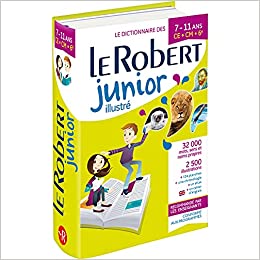
This picture-packed and attractive dictionary will fill your children with joy. Children from 7 to 11 years old as well as young students from second grade to sixth grade will benefit from a major asset.
13,59 £ on AmazonLearning the French language begins at a very young age. This book is dedicated to children so that they can get a taste for it while learning. Indeed, the Robert junior illustré enriches the vocabulary while providing pictorial representations, so that beginners get a real image of what they are reading.
For more details, the Robert junior illustré includes no less than 32,000 words. Homonyms, opposites, synonyms, and words of the same family are beautifully represented. In addition, this dictionary also includes grammatical and spelling notes.
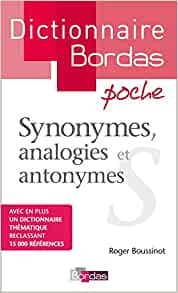
This dictionary is self-explanatory thanks to its orderly layout. In fact, its organization and the multitude of nomenclatures it contains are ample proof of the extent of the choice offered to the user.
7,99 £ on CulturaThe practicality and ease of use of this dictionary make it a faithful companion for mastering the French language. Indeed, its purpose is to decipher all the subtleties related to the French language. What's more, by consulting it from time to time, you can only enrich your vocabulary.
Moreover, with its 658 g and its 10.8 x 4.2 x 17.8 cm dimensions, it is neither bulky nor too heavy to be carried anywhere. However, it should be noted that this dictionary includes a thematic index that lists the words or entries in its entirety, to facilitate research.
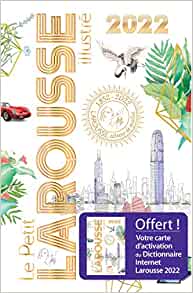
This work of 63,600 words also includes more than 28,000 proper names. It is one of the most complete dictionaries with its 20,000 phrases. It weighs about 2,402 grams.
24,76 £ on CulturaThe Petit Larousse Illustré 2021 edition has 2048 pages in total. This makes it a bit heavy since it weighs 2 402 g. It must be admitted that it is therefore quite bulky. However, this is compensated by the complexity of its elaboration. Indeed, this dictionary is similar to an encyclopedia, given the details provided regarding the definitions of each entry.
It goes without saying that Larousse is a true reference for learning the French language. This 2021 edition is concrete proof of this. In fact, the Larousse Illustré offers a total of 63,600 words. Among these words are 28,000 proper nouns that cover major events, public figures and, in particular, places rich in history.
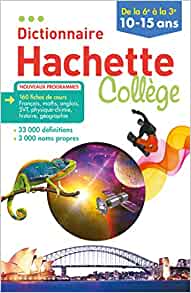
The Hachette publishing house is giving priority to supporting middle school students with this book of 33,000 definitions. The definitions are simplified to facilitate reading. In addition, this dictionary includes 256 pages dedicated to courses.
11,92 £ on CulturaThe Hachette college dictionary published on June 5, 2019 is intended for middle school students. It is distinguished by the simplicity of the terms used so that they can better assimilate the definitions. What's more, its 256 pages of lesson sheets are an essential support for learning the French language. In addition, it offers no less than 33,000 entries.
The strong point of this dictionary is the presence of several remarks explaining succinctly the difficulties that are present. Moreover, as the French language has evolved recently, the new spelling rules are expressly included. It is ideal for skimming the sections on mathematics, geography, etc.
Any specific needs?
The best entry-level dictionary
Your guide :
Rate this buying guide :By rating this buying guide, you are helping us to reward our best writers. Thank you!
| THE BEST | CHEAP | TOP OF THE LINE | EXCELLENT | |

In accordance with our commitment, this buying guide does not contain any sponsored products. |
 8/10 |
 7/10 |
 9/10 |
 8/10 |
| OUR SELECTION |
The Illustrated Robert Junior
|
Bordas pocket dictionary
|
Le Petit Larousse Illustré 2021 edition
|
Hachette collège
|
|
This picture-packed and attractive dictionary will fill your children with joy. Children from 7 to 11 years old as well as young students from second grade to sixth grade will benefit from a major asset.
|
This dictionary is self-explanatory thanks to its orderly layout. In fact, its organization and the multitude of nomenclatures it contains are ample proof of the extent of the choice offered to the user.
|
This work of 63,600 words also includes more than 28,000 proper names. It is one of the most complete dictionaries with its 20,000 phrases. It weighs about 2,402 grams.
|
The Hachette publishing house is giving priority to supporting middle school students with this book of 33,000 definitions. The definitions are simplified to facilitate reading. In addition, this dictionary includes 256 pages dedicated to courses.
|
|
|
Title
|
Dictionary le robert junior illustrated - 7/11 years
|
Bordas pocket dictionary: synonyms, analogies and antonyms
|
Petit Larousse Illustré (2021 edition)
|
Dictionary hachette college
|
|
ISBN
|
978-2-321-01516-1
|
978-2-047-31288-9
|
978-203-593861-9
|
978-2-013-95147-0
|
|
Date of release or publication
|
28 May 2020
|
March 13, 2008
|
3 June 2020
|
5 June 2019
|
|
Number of pages
|
1,548
|
956
|
2,048
|
1 344
|
|
Weight
|
1,967 g
|
630 g
|
2,402 g
|
1 400 g
|
Help us improve this table:
Report an error, request the addition of a feature to the table, or suggest another product. Thank you for your kindness!
We spend thousands of hours each year studying the major specialized websites, analyzing products of hundreds of brands and reading user feedback to advise you on the best products.
We are a product review company with a single mission: to simplify your buying decisions. Our research and testing helps millions of people every year find the best products for their personal needs and budget.
To support us you can: use our links to make your purchases (which often earns us a small commission), share our articles on social networks, or recommend our site on your blog. Thanks in advance for your support!
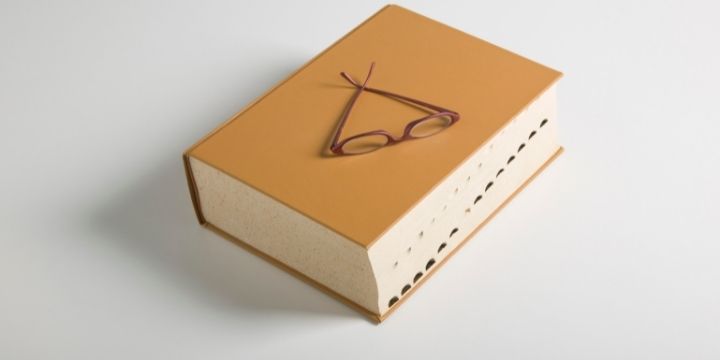
The font and the size of the text play an important role when buying a dictionary. Indeed, these two parameters influence the perception of each user, according to their sight. Therefore, it is advisable for people with presbyopia to focus on books with large text to better see what is written in them.
Each dictionary has a predefined age. Indeed, an 8 year old child will not be able or interested in reading correctly a dictionary with too many scientific terms and without pictures. For this reason, it is advisable to ask the seller for information, and in particular to see if the cover has a mention to this effect.
Each dictionary differs from the use to which it is predestined. For example, middle and high school students can rely on a simple language dictionary. On the other hand, researchers who have to prepare a thesis will rather turn to encyclopedic dictionaries. However, the choice of the latter should be based on their work such as science, philosophy, etc.
The weight and format of the dictionary will also influence your uses. For example, it will be better to have a complete model at home and a pocket size to accompany you in class or on the road. The pocket size is more compact.
Certainly, all dictionaries are developed from information gathered by linguists, grammarians and scientists. But, one should not forget that there are different types of general and specialized dictionaries. Therefore, the choice should be based on the field of study to have more information on the subject.
The purchase of a dictionary is often based on the number of words. Ditto for the relevance of the definitions. Indeed, some dictionaries give only a limited number of words without being more explicit than possible. This means that the choice is quite difficult regarding these 2 parameters which must challenge the reader.
First of all, using a dictionary is not at all complicated! A good research methodology allows you to quickly find the monemes or phonemes (meaning) that are listed in it. Here are some points to consider.
In most cases, words are listed alphabetically, from "a" to "z", for all dictionaries. It will be even easier if you can spell the word you are looking for correctly. On the other hand, if you can't, you'll have to fumble around a bit to find the right entry.
In addition, the second solution is to refer to a known word that is close to the one you are looking for to find the right page. It is usually placed on the header of the dictionary. Otherwise, the transcription of the first letter is useful if the first letter is not identified at first sight. To do this, simply rely on phonetics to identify all the possibilities. For example, the sound "k" can be heard as "qu" or by "c" as in "quota" or "cumulate".
All dictionaries have abbreviations, placed right next to the entry. These abbreviations are used to identify the grammatical category, the language register and, in some cases, the character. We can cite the following as some of the most commonly used ones:
However, it should be noted that this list is not exhaustive due to the richness of all existing languages. These abbreviations mentioned above are generally specific to the French language!
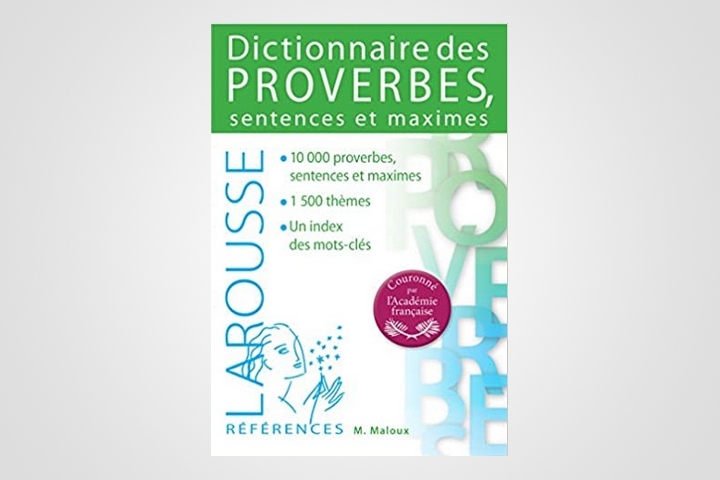
Language, French or any other language, being the main means of interaction with others, must be understood. It is in this perspective that the language dictionary has been elaborated by various renowned linguists.
However, it should be noted that some of these works are said to be unilingual. In other words, it means that the dictionary is entirely in French, English, German, etc. On the other hand, there are multilingual dictionaries where you can find 2 languages such as French and English, etc. This allows you to have a succinct translation of the definition from one word to another.
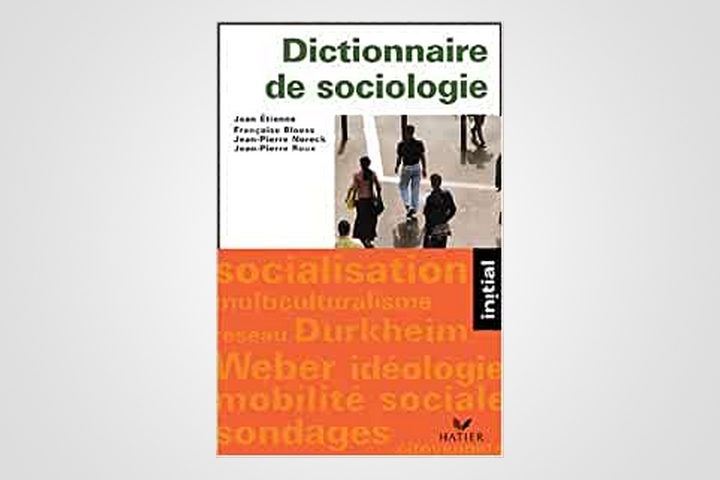
Specialized dictionaries are characterized by their particularity to deal with a specific field. In particular, you may come across those that focus on the humanities, economics, sociology, history, psychology, etc.
Moreover, their elaboration requires specialists in the field so that the terms used can offer unparalleled precision by highlighting specific details. Thus, this type of dictionary is intended for researchers, students, etc. It is thanks to it that the precise field of activity is more thoroughly explored. In other words, it doesn't deviate too much from the original purpose assigned to it.
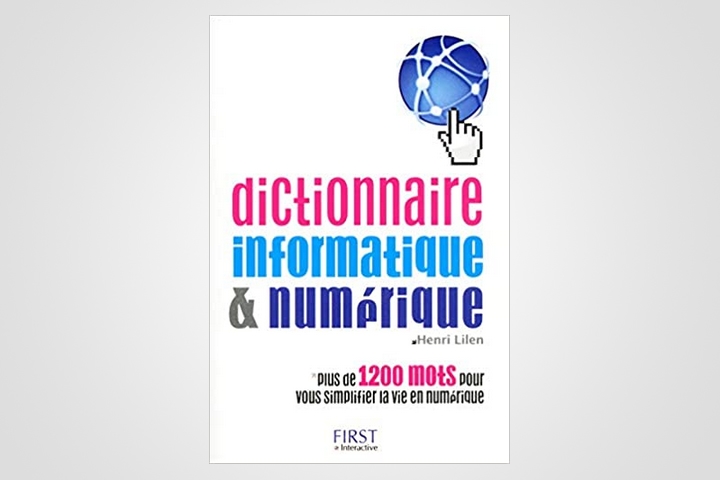
The meteoric progress of technology has allowed for software programming that keeps evolving in terms of intuitiveness. Also, dictionaries being very solicited in terms of learning are no exception to the rule. As a result, there are both online and offline versions.
However, the latter sometimes requires a minimum of updating to bring up new entries. It should also be recognized that these applications are very practical and can be operated with the fingertips. On the other hand, the offline option can be quite cumbersome if the device on which it is installed does not have enough space.
It is sometimes difficult to decide between a dictionary and an encyclopedia. Here are a few points that might bring more clarity to the subject.
The dictionary is an indispensable tool for learning the definitions of words in a language. In fact, there is not only the French dictionary, as almost all countries in the world publish their own dictionaries in order to be understood by others.
Moreover, it turns out that nowadays, it can be presented in printed and digital versions. And this can make all the difference when the dictionary contains more than 60,000 words. Indeed, the more pages there are, the more the printed version weighs in a bag. The same is true for the digital version, which will take up considerable storage space.
The encyclopedia is characterized by the number of volumes, sometimes 17 in all, but some can have up to 35 volumes, such as the " Encyclopedia or Reasoned Dictionary of Sciences, Arts and Crafts " by Denis DIDEROT and Jean Le Rond D'ALEMBERT.
This kind of work is not published in one go if it is a printed version. On the other hand, its electronic version includes a multitude of articles illustrated by images.
The encyclopedia differs from the customary dictionary, which focuses mainly on linguistics. In other words, the concern of a simple dictionary is to provide detailed information about the signifier as opposed to the signified which is simply summarized. Therefore, the encyclopedia is a rich source of data with explanations, definitions, etc.
However, the printed version of these two types of works are different. Indeed, a dictionary can be collected in a single volume while the encyclopedia exists in several volumes. Another fact is that if they are both represented in a digital version, the problem is the ability of the device to support the application. In conclusion, for simple use, the dictionary remains the best option.
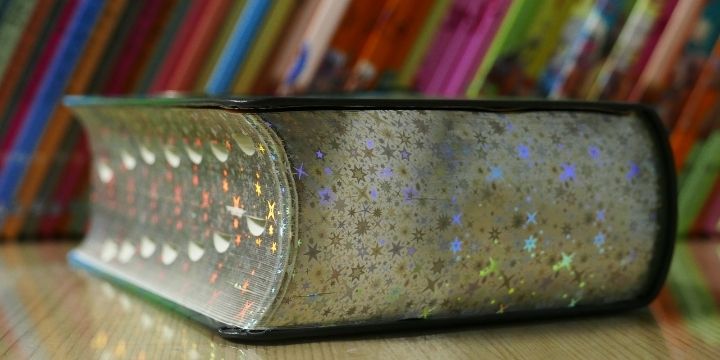
The usefulness of the dictionary is no longer in question, given the popularity it has among consumers. However, since some people are still reluctant to get one, here are 5 good reasons to have one at home.
1. Know the definition of a word
The dictionary is the ideal companion for finding out the definition of a word. Indeed, if we refer to the French language, the terms used are in most cases polysemous. In other words, their meaning varies according to the context in which they are used. This situation is especially true for homophones and homographs.
2. Finding the right phonetics
In this case, the dictionary has a small note near each entry to translate each word phonetically. It is true that the transcription is not immediately obvious to the uninitiated user. However, there is no need to worry because documents dedicated to this exercise are available on the Internet.
3. Conform to the grammar
It is not always easy to write correctly a rather complex phase. Indeed, there are different parameters that come into play. We can mention among others the number, the gender, the semantics, etc. The same goes for the ending of certain words when they are conjugated in the plural. Indeed, some take an "s", others end with "ent", or "aux".
4. Improve your eloquence
All languages, French or not, have their own particular charms depending on the composition of the sentences and the arrangement of the words. This is why the dictionary is useful for enriching your vocabulary. In fact, there are ready-made expressions that can be used only in colloquial language or in formal language such as that used in official speeches.
5. Spelling a word better
When you are writing a text, it sometimes happens that you have doubts about the spelling of a word. This is why it is necessary to consult the dictionary from time to time to avoid making mistakes. However, if the word you are looking for does not appear in the dictionary you are using, it is either misspelled or it is really non-existent or outdated.
In our opinion, the best brands of dictionaries in 2022 are :
Founded by Pierre LAROUSSE in 1852, the brand was established in Paris, France. Its reputation in the publishing industry has continued to grow. As a lexicographer and encyclopedist, Pierre Larousse has not ceased to produce works combining knowledge and expertise, such as the Grand Larousse encyclopédique, the Nouveau Larousse illustré, and the Grand Larousse universel, etc. All this to say how much he was a man of letters and science working for his peers.
Focusing only on the French language, Le Robert invested in the educational and professional market. It is part of the Editis group, which gives it free rein to produce incomparable works. Although this brand was born in 1951, it does not prevent it from trying to take the first place from the biggest and most prestigious of the moment.
This brand is an integral part of Hatier Editions. It is thanks to the FrenchmanLouis-Nicolas Bescherelle who is at the same time lexicographer, grammarian, librarian and novelist that the Dictionnaire des huit mille verbes usuels de la langue française was born in 1843. On the other hand, he did not become fully involved with Hatier until 1913. The latter is currently involved in several fields such as history, conjugation, etc.
Founded by Henri Plon in 1845, this French publishing house is involved in the production of various works.Thus, several disciplines are addressed through their books produced to date. Thus, we can mention among others the economy, philosophy, spirituality, politics and religion. In addition, this publishing house is the author of a collection of work entitled " Dictionnaire amoureux " which includes several articles whose classification is done in alphabetical order, so that the reader can find himself easily.
It is since 1826, that Louis Hachette created his publishing group of the same name. Moreover, it has been part of Lagardère SCA since 1981. By acquiring a number of publishing houses such as the prestigious Larousse and many others, Hachette has propelled itself to the first place as a publisher in the UK. On the other hand, Hachette only holds the second place in Spain.
The diagram below will help you to get an idea of the typical prices for each price range (entry-level, mid-range and high-end).
However, more expensive does not necessarily mean better.
We therefore advise you to always consult our ranking before deciding, rather than blindly relying on price ranges.
Store your dictionary properly
It goes without saying that books are quite fragile and require special attention so that they do not deteriorate quickly. Therefore, it is important not to expose them to humidity at the risk of seeing mould appear. In order to do so, it is better to use wooden wall displays or glass cabinets.
Find the word you're looking for quickly
In order not to waste too much time to find an entry in your dictionary, you should know that they are classified in alphabetical order. In this case, think of the first, then the second letter of the word and so on, in order to come across the corresponding page.
Clean out your old dictionary
Books and especially dictionaries tend to gather dust over time. In order not to tarnish either the cover or the pages, simply use a paper bag and a tablespoon of baking soda. Then, place your book inside, making sure to seal the bag. One week is enough before lightly brushing off the residue.
Find the right dictionary
As long as you have an array of specialized dictionaries and other books, consider sorting them by color. Indeed, multi-volume encyclopedias will be best sorted alphabetically. Alternatively, you can always use thematic sorting. For example, language dictionaries on one side of the shelf and scientific dictionaries on the other side separated by bookends.
Use bookmarks
Bookmarks will be very useful for your research. Indeed, they come in different colors. In addition, you can use a marker to scribble a small note on them. To do this, stick them on each first page (one for entries beginning with "A", another for "B" and so on.).
Whether you are forced to translate a French word into English or vice versa, it should be noted that everything will depend on the context, unless it is an idiomatic expression. Therefore, to rule out literal translations, first look up the word to be translated. You will find that bilingual dictionaries offer different translations. Thus, your choice will have to be oriented according to the context.
The number of entries to define varies according to the type of dictionary. As an example, the 2021 Petit Larousse Illustré has 63,500 definitions. The 2021 Larousse junior has 31,000 definitions. However, the Larousse de poche 2021 consists of 72,000 words and no less than 8,500 proper nouns. As for the Robert de poche 2021, it has 56,000 definitions with 10,000 proper nouns.
This type of dictionary is a great ally to enrich one's vocabulary. In addition, in some books, the rules of spelling and grammar are exposed, so as not to make mistakes that can be avoided. In addition, a pocket dictionary is easy to carry. However, the typography can cause discomfort for users with poor eyesight.
Dictionaries, just like any other book, fade and yellow over the years. Dictionaries, like any other book, will fade and yellow over time, and sweat, dust, and moisture will contribute to this deterioration. Therefore, keep it in a dry place if possible. You can always clean it after each use by gently scrubbing it with a soft brush.
Every month we help more than 1 000 000 people buy better and smarter.
Copyright © 2022 - Made with ♥ by buyingbetter.co.uk
Your reviews and buying guides 0% advertising, 100% independent!